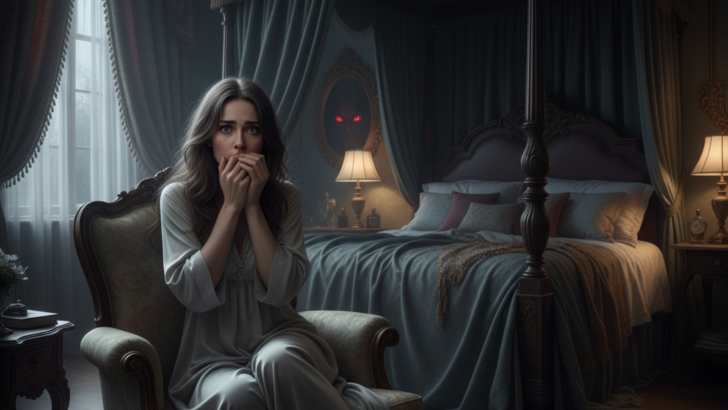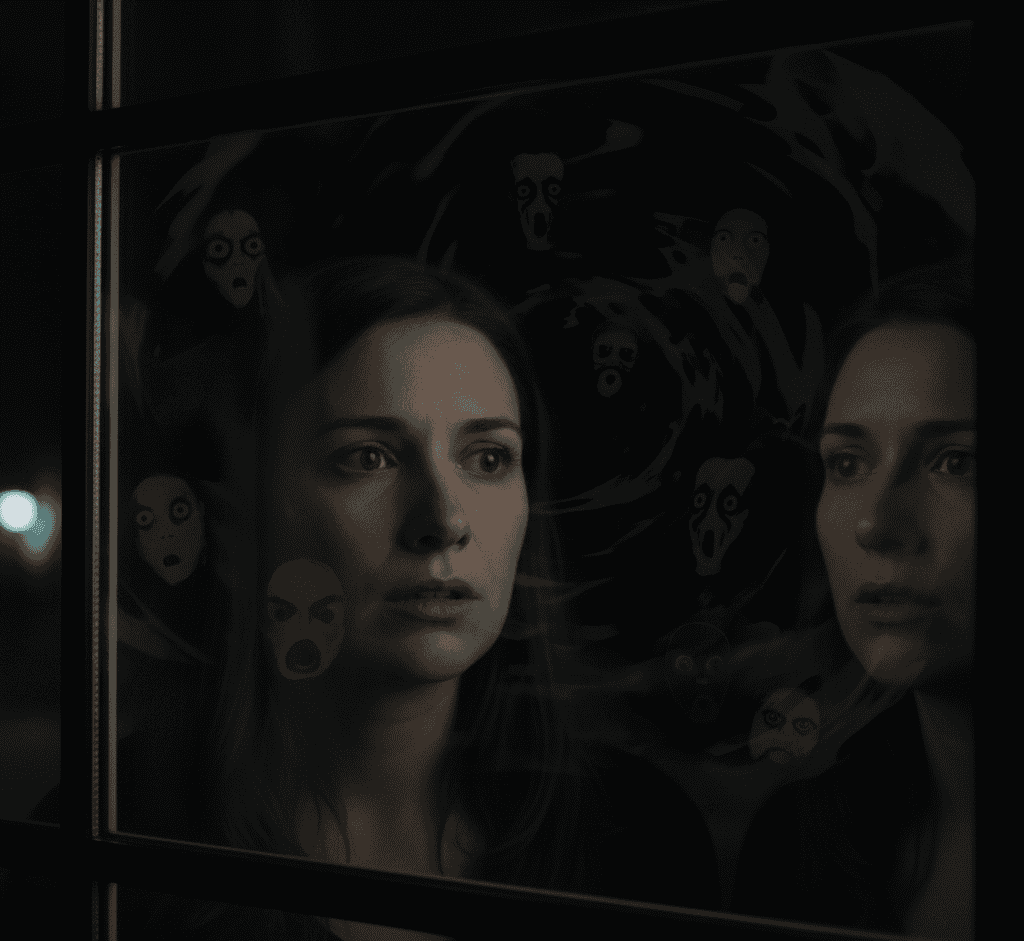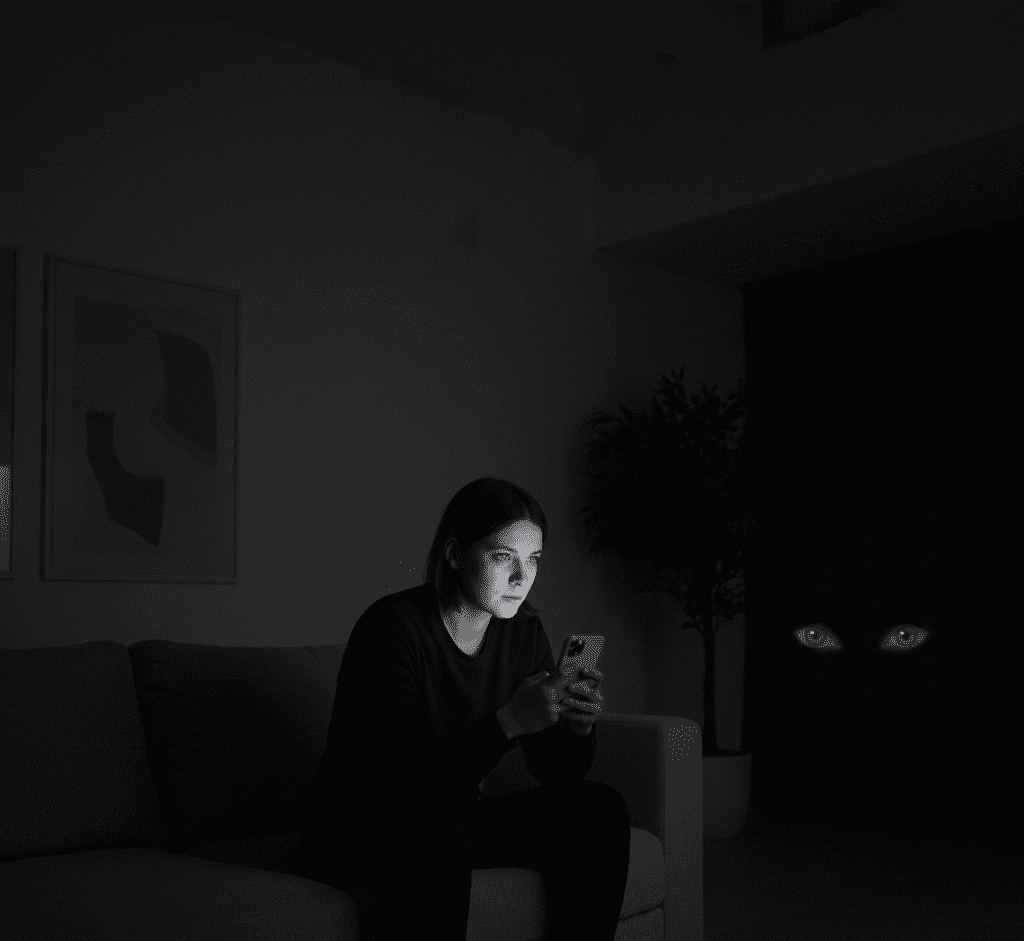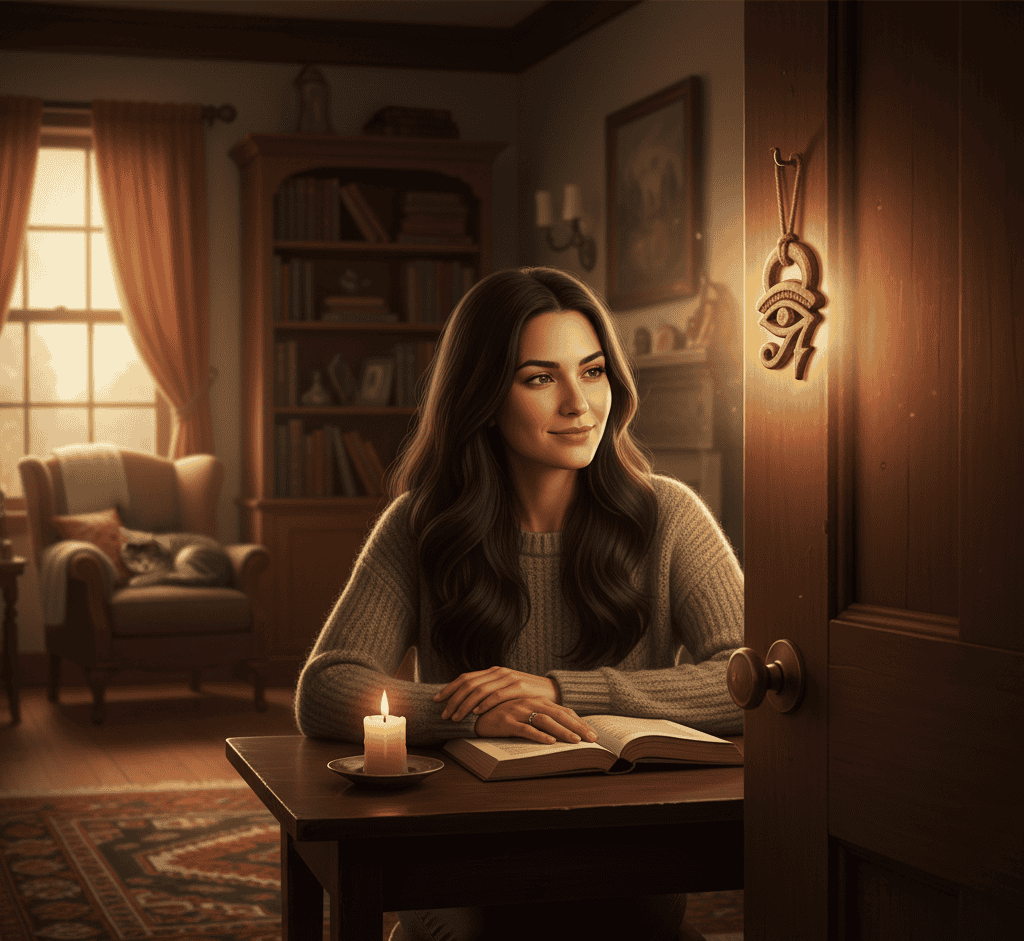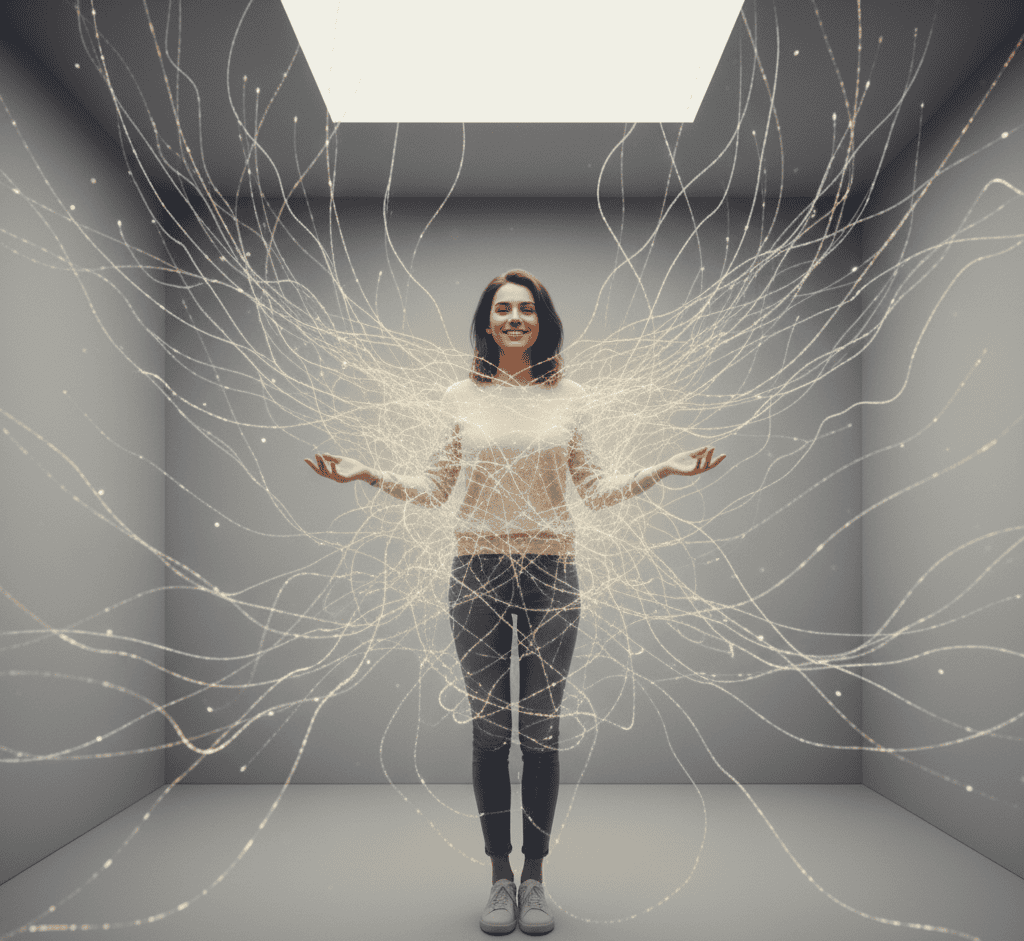It happens to almost everyone. You are sitting alone in a quiet room, reading or scrolling on your phone, when a strange feeling creeps up your spine.
You turn your head just slightly because it feels like someone or something is there, staring at you.
The room is empty, of course, but your heart beats faster anyway. The logical part of your mind knows you are alone, yet another part insists you are not.
This feeling, the eerie sense of being watched, has been around as long as humans have existed.
It is so common that scientists, psychologists, and spiritual thinkers have all tried to explain it. Is it just your brain misfiring, or something more mysterious?
The Ancient Instinct That Never Left Us
Long before cities and smartphones, our ancestors lived in open plains and forests where eyes in the dark could mean danger.
The sense of being watched was not superstition then; it was survival.
Those who could sense a predator lurking behind them had a better chance of living. That instinct, called hypervigilance, still lives in our brains today.
When you walk alone at night and feel that chill, it is your nervous system firing up an ancient alarm.
The brain releases a rush of alertness, urging you to turn around and check for danger. Sometimes you notice a shadow or hear a sound, and your imagination fills in the blanks.
Even though we live in locked houses now, the primal part of the brain does not care about doors or security systems. It reacts as if you were still in the wild.
This built-in warning system is handled by the amygdala, the part of your brain that processes fear.
It picks up even the smallest cues and jumps to the safest conclusion: something is there.
That gut feeling once saved lives, but now it just gives us goosebumps in empty rooms.
The Brain That Sees Faces Everywhere
The human brain is a master storyteller, always searching for meaning in random patterns.
That is why we see animals in clouds or faces in trees. Scientists call this pareidolia, the tendency to see shapes and intentions where none exist.
It is the same mechanism that may cause us to feel watched when alone.
When your brain notices something vague — a shadow, a sound, or even silence — it tries to fill the gap with a familiar shape.
Because we are social creatures, the most familiar shape of all is another human face.
Even in complete darkness, your mind starts to “draw” one out of the shadows. You might not consciously see it, but your body reacts as if it’s real.
There is a fascinating experiment where participants sat in a dim room with a mirror.
After a few minutes, many reported seeing faces appear — sometimes their own distorted, sometimes others entirely.
Their brains were inventing watchers because that is what the mind does when deprived of clear information.
Our brains evolved to assume presence, not absence. It is better, evolutionarily speaking, to imagine a pair of eyes watching you than to miss a predator that was actually there.
So when your instincts whisper that you are being watched, it is just your mind’s old defense system running a quick test of the environment.
When the Feeling Becomes Something Deeper
Of course, not all experiences of being watched can be dismissed as tricks of the mind. Sometimes, the feeling is strong, emotional, and strangely specific.
People report knowing exactly where the invisible gaze comes from or even who it belongs to.
These moments can happen during grief, stress, or exhaustion — times when the mind is open to suggestion.
Psychologists believe this happens because loneliness and anxiety sharpen awareness. When we feel isolated, our brains crave connection. Even a negative presence feels like company.
It is why haunted houses often come to life in silence, why empty offices feel different after dark, and why grieving people sometimes swear they feel their loved ones near.
There is also the theory of the “presence hallucination,” a mild and surprisingly common brain glitch.
It happens when the brain misinterprets its own body signals as coming from someone else nearby.
It can occur during fatigue, illness, or deep concentration. Mountaineers and sailors alone for long periods often describe sensing a companion who is not there, someone walking beside them, unseen but comforting.
Far from being madness, it may be the brain’s way of keeping us company in moments of extreme solitude.
The Watchers We Imagine and the Ones We Create
Outside of science, countless cultures have their own explanations for that watchful feeling.
In many spiritual traditions, unseen eyes are not imaginary — they belong to spirits, ancestors, or energies that surround us.
Ancient Egyptians believed that the Eye of Horus watched over the living to protect them.
In Japan, the Zashiki-warashi, a spirit of the home, was said to make its presence felt with small movements and giggles.
In many parts of the world, people light candles or hang charms to honor these invisible guardians. The feeling of being watched, in this sense, is not a warning but a reminder that someone still cares.
Modern ghost stories build on the same instinct. We describe cold spots, flickering lights, and the sense of presence in haunted places.
Psychologists might say it’s environmental cues playing tricks, but the emotions are real. The sensation of being seen triggers awe, fear, and curiosity all at once.
It connects us to an ancient part of ourselves that still believes in the world beyond sight.
There is also a social aspect to this feeling in our digital age. Cameras, phones, and online surveillance mean that many of us actually 是 being watched, even when alone.
Our subconscious may have picked up on this modern reality, blending it with older instincts.
The difference between visible and invisible watchers has blurred, and our bodies respond the same way: a quick heartbeat, a glance over the shoulder, a whisper of unease.
Some spiritual teachers suggest embracing that feeling rather than fearing it. The sense of being seen could be your mind reminding you that you exist, that you matter.
The Eyes in the Quiet
So why do we feel watched when we are completely alone? Because deep down, our minds are always reaching outward, looking for other minds.
The instinct that once saved us from predators now reminds us of our humanity. We imagine eyes in the dark not because we are afraid of the world, but because we are built to belong to it.
Maybe the feeling of being watched is not about ghosts or paranoia. Maybe it is a small echo of connection — a leftover from a time when being alone meant danger, and company meant safety.
That feeling, strange as it is, ties us to every generation that came before us. It is the heartbeat of survival, still pulsing in modern rooms.
So the next time you feel those invisible eyes, smile instead of shivering. It could be your ancestors watching over you, or it could just be your clever brain keeping you safe.
Either way, you are not as alone as you think — and maybe that is exactly the comfort you need.

自出生以来,我一直感觉到自己与神灵有着紧密的联系。作为一名作家和导师,我的使命是帮助他人在最黑暗的时刻找到爱、幸福和内心的力量。

